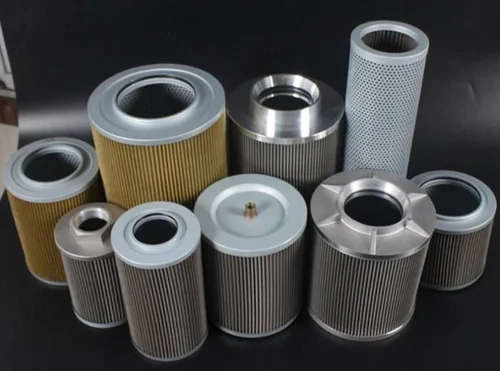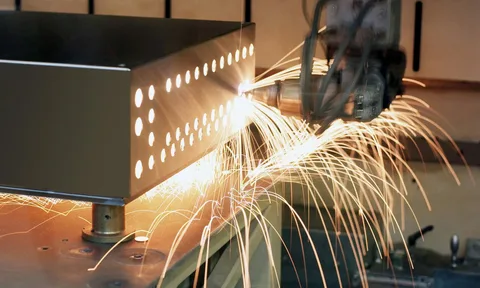Heavy machinery is the workhorse of industries like construction, mining, agriculture, and forestry. These machines are expected to perform under extreme conditions, lift massive loads, and operate for long hours. Central to their power and performance is the hydraulic system—a complex network of pumps, valves, cylinders, and fluids working in perfect harmony. But what keeps this system clean and efficient? One critical component often overlooked is the Hydraulic Filter.
A high-quality hydraulic filter acts as a line of defense between smooth operation and costly breakdowns. Without it, contaminants like dirt, metal particles, and water can wreak havoc on your machine’s internal systems. That’s why sourcing a dependable Hydraulic Filter from suppliers like Hydraulic Filter at AmoParts can mean the difference between seamless operation and unexpected failure.
Let’s explore how hydraulic filters work, why they’re essential, what signs indicate a replacement is needed, and how choosing the right filter can extend your equipment’s lifespan.
Why Filtration is Critical in Hydraulic Systems
Hydraulic systems rely on clean, pressurized fluid to power essential movements—whether it’s lifting a boom, rotating an arm, or driving tracks. These fluids operate under high pressure and circulate through narrow passages. Any impurity, even microscopic, can block these pathways, damage components, or alter pressure flow.
Common Contaminants Include:
- Metal shavings from worn components
- Dirt and dust from operating environments
- Water from condensation or fluid contamination
- Sludge due to fluid degradation
Even in well-maintained machines, particles are inevitable. That’s why the hydraulic filter plays such a crucial role—it continuously removes these impurities, preventing wear and maintaining peak system performance.
How a Hydraulic Filter Works
At its core, a hydraulic filter is a simple device with a complex responsibility. It traps unwanted particles while allowing the necessary hydraulic fluid to pass through at optimal pressure and flow rates. Here’s how it works:
🔄 Filtration Medium
This is the core filtering material (often cellulose, synthetic fiber, or wire mesh) that captures contaminants.
🔁 Bypass Valve
In case of clogging, this safety mechanism allows unfiltered fluid to flow to prevent system pressure from dropping to dangerous levels.
🔍 Beta Rating
Indicates the filter’s efficiency—e.g., a beta rating of 200 means for every 200 particles of a certain size, only 1 passes through.
🔩 Housing and Seal
Protects the filter element and maintains a secure, leak-proof fit within the hydraulic circuit.
Filters are often positioned in one of three locations:
- Suction Line Filters (before the pump)
- Pressure Line Filters (after the pump)
- Return Line Filters (before fluid returns to the reservoir)
Each placement serves a specific function and may require different specifications.
What Happens When You Don’t Replace the Filter?
Ignoring hydraulic filter maintenance can have cascading effects on your heavy equipment. Dirty or clogged filters force the pump and valves to work harder, reducing efficiency and accelerating wear.
Consequences of Filter Neglect:
- Reduced hydraulic performance
- Overheating of components
- Damaged pumps, actuators, or valves
- System shutdown or catastrophic failure
- Contaminated fluid requiring complete flushing
In short, skipping filter maintenance may save a few dollars now—but can cost thousands in repairs or replacement parts later.
How Often Should You Replace a Hydraulic Filter?
There’s no universal answer because replacement frequency depends on:
- Machine usage hours
- Operating environment (dusty, wet, etc.)
- Type of hydraulic system
- Filter type and placement
That said, general best practices include:
- Replacing filters every 500 to 1,000 hours of operation
- Monitoring filter condition with pressure gauges or sensors
- Changing the filter any time fluid is flushed or changed
Always refer to your machine’s maintenance manual, and when in doubt, err on the side of early replacement.
Choosing the Right Hydraulic Filter
A wrong or substandard filter can cause as much harm as no filter at all. Here’s what to consider when purchasing a replacement:
✅ Compatibility
Ensure the filter fits your specific machine make and model. The wrong size or spec can cause pressure drops or leakage.
✅ Filtration Rating
Match the micron rating to your system’s needs. Lower ratings (e.g., 10 micron) capture finer particles but may clog faster.
✅ Flow Rate
Choose a filter that can handle your system’s fluid flow without causing restrictions.
✅ Quality Material
Filters from trusted brands or suppliers use advanced media that resist collapse, handle high pressures, and last longer.
✅ Verified Supplier
Always buy from vendors known for heavy equipment expertise, like AmoParts, which offer filters designed specifically for industrial and construction-grade use.
Signs Your Hydraulic Filter Needs Replacement
Even with regular schedules, sometimes your machine tells you it’s time for a change. Watch for these warning signs:
- Decreased machine response or performance
- Unusual noises from hydraulic components
- Overheating during operation
- Visible debris in fluid reservoir
- Warning lights or fault codes on the dashboard
Don’t ignore these clues. A quick filter replacement can save you from a complete system breakdown.
Hydraulic Filter Maintenance Best Practices
To maximize the efficiency and lifespan of your filter and system, follow these practices:
- Inspect filters during every maintenance cycle
- Keep a record of replacement intervals
- Check fluid cleanliness with test kits if possible
- Always use fresh hydraulic fluid with a new filter
- Pre-fill new filters before installation (if required)
Consistency is key. Good maintenance habits keep your machinery operating safely and productively, reducing total cost of ownership.
Final Thoughts: A Small Filter with a Big Responsibility
The Hydraulic Filter may be small in size, but its role in protecting your equipment is enormous. Clean hydraulic fluid equals a healthy machine—free from blockages, pressure losses, or catastrophic damage. Whether you operate a single backhoe or manage a fleet of excavators, giving attention to this one component pays off in longevity, efficiency, and peace of mind.



